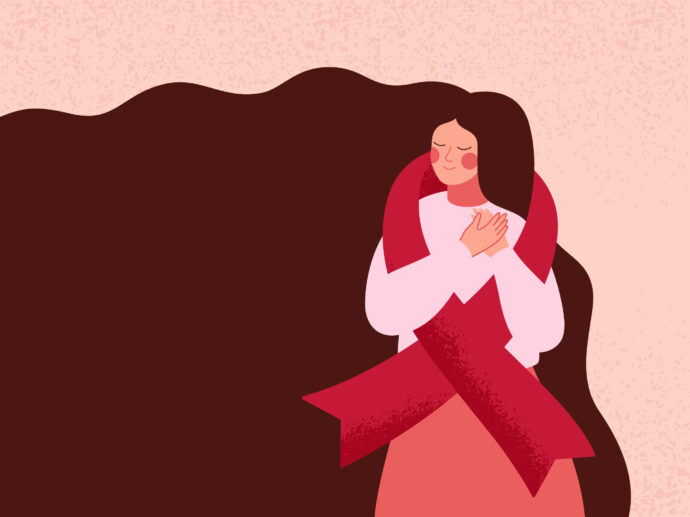 Author: Irma Kakhurashvili, Georgia
Author: Irma Kakhurashvili, Georgia
The former clergyman David (name changed – editor’s note) from Georgia, who was charged with cultivating cannabis, will have to pay 2,000 laris to the government based on the law and the plea agreement plus 500 laris for using marijuana.
David did not keep it secret from the police that he was growing and using cannabis for self-treatment and herbal therapy. According to the man, for two years it helped him to overcome pain and lose appetite, as Giorgi has diabetes, pancreatitis, cholecystitis, hepatitis C and hepatic cancer.
The former clergyman was “lucky” not to find himself behind the bars as on 30 November 2017 the Constitutional Court of Georgia resolved that the provision on criminal responsibility and imprisonment was a human rights violation, even in case of the repeated use of cannabis.
No legalization
The decision of the Constitutional Court only applies to people who use cannabis. Now cannabis possession for personal use within the set limits will not be prosecuted in line with the Criminal Code, but will rather be treated as an administrative offence.
The government will also expunge the convictions of those who were prosecuted for the use of cannabis in the past. The studies initiated by the Human Rights Education and Monitoring Centre in Georgia show that currently every third inmate is convicted for drug-related crimes. People using cannabis are also on this list.
In the joint survey conducted in 2015 by the National Centre for Disease Control and Public Health, 32% of men and 2.9% of women in Georgia reported having used marijuana. The issue of cannabis decriminalisation and legalisation was first raised five years ago, but then the initiator of this idea – civil movement “The 2nd of June” – failed to get support even from the community of people who use drugs because they demanded to decriminalise not all the drugs, but only cannabis.
Kote Rukhadze, activist of the Georgian Network of People Who Use Drugs, explains that advocating for cannabis separately from other drugs is not fair.
“Marijuana is also a psychoactive substance. Any person with physical or mental dependence needs help. Therefore, we will not support only those who smoke weed”, says Kote.
Despite the decision of the Constitutional Court, people advocating for reforming the Georgian drug policy are convinced that decriminalising cannabis is only a small part of positive changes in the repressive approaches of the state, though it gives hope for better results – decriminalisation of all drugs.
David Otiashvili, director of the Alternative Georgia NGO is sure that the decision of the Constitutional Court will help to change the attitude of the government to other drugs as well and will make the general approach more humane.
“The injecting drug use more often leads to dire consequences, which is clearly demonstrated by the number of overdoses and the spread of infectious diseases. Therefore, the reform should first of all focus not on the people who smoke but on improving the situation of people who inject drugs”, says David Otiashvili.
Pros and cons
The discussion of the draft law stipulating decriminalisation of all the types of drug use causes heated debates in the Georgian Parliament.
 “I represent the generation of people whose friends started from smoking weed and then died of hard drugs. I am against decriminalisation, which will lead to the danger of uncontrolled distribution of drugs in the country and will paralyse the police”, says Giga Bukia, a member of the Georgian Dream parliamentary group.
“I represent the generation of people whose friends started from smoking weed and then died of hard drugs. I am against decriminalisation, which will lead to the danger of uncontrolled distribution of drugs in the country and will paralyse the police”, says Giga Bukia, a member of the Georgian Dream parliamentary group.
The results of the research study published on the website of the Chief Prosecutor’s Office of Georgia demonstrated that for 79.2% of probationers the first substance they tried was marijuana and the second one was opium.
However, one of the leading substance abuse treatment specialists, Nika Kapanadze notes that in his practice he has never seen any patients physically dependent on marijuana.
“Marijuana does not cause an acute abstinence syndrome. When people use it systematically, they may develop psychological dependence, bronchitis, sometimes short-term troubles controlling movements or concentrating, but nothing more,” says the doctor.
When meeting the MPs, Kaki Zoidze, chairman of the parliamentary healthcare committee and one of the supporters of the draft law, always reminds them that the document does not stipulate legalising drugs, cannabis in particular.
“This draft law is about liberalisation, and liberalisation does not cover article 260 on drug dealing and distribution. It will remain a criminal offence,” he explains.
Parliamentary majority member Dmitri Khundadze thinks that this draft law is a danger to the society as in Georgia there is no rehabilitation for people who use drugs, and without this component even dreaming about decriminalisation is dangerous.
The President of Georgia Giorgi Margvelashvili does not support the drug policy which has “ruined the lives of many people.”
“I am for developing a more adequate drug policy,” said the President to the experts working on the draft law.
**
The assessment document prepared by the parliamentary healthcare committee describes various scenarios of the expected outcomes which may come out of drug policy reform. According to the document, if the reform is not implemented, by 2027 the number of people who use drugs will grow by 12.06% as compared to 2017 and will amount to 55,614 persons, and the number of people who use drugs infected with HIV will increase by 154%.




